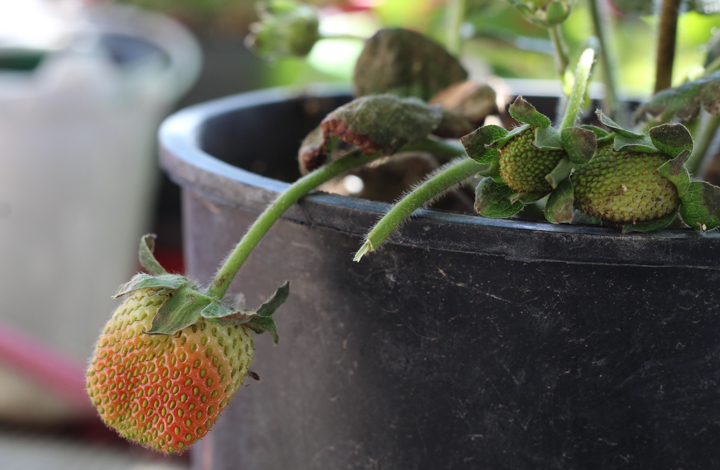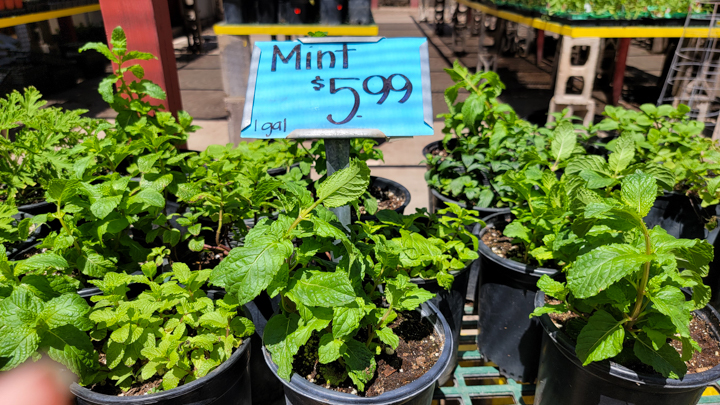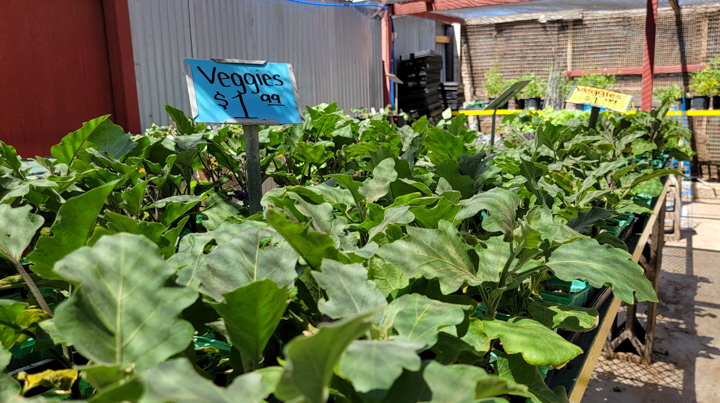El Paso’s public libraries go beyond feeding the mind with books and videos. The libraries also offer an inventory of free seeds to residents to encourage them to grow their own edible gardens.
The seed libraries include non-genetically modified fruits, vegetables and herb seeds to give El Pasoans easy access to nutritious food, especially in lower-income communities.
“We wanted to help El Paso become more food sufficient and self-sufficient in terms of growing and eating their own food. So, we wanted people to start urban gardens and to start living healthier lives and eating healthier through their own means,” said Jack Galindo, marketing and customer relations coordinator for the El Paso Public Library.
According to a 2013 study conducted by Food Trust and the Institute of Healthy Living, people living in neighborhoods without a nearby grocery store suffer from disproportionately high rates of obesity, diabetes, and other diet-related health problems.
The study also revealed that people who live in a community with access to a full range of healthy foods tend to eat more fruits and vegetables and are more likely to maintain a healthy weight.
“Fruits and vegetables are something that you could have almost an unlimited amount of. It helps you to make you feel fuller because they provide fiber, and there is just a whole bunch of nutrients that come with fruits and vegetables,” said Gigi Shamaley, El Paso county extension agent of family and consumer science.
Easy access to healthy food not only affects people’s diet, but gardening can also improve physical and mental health.
“Gardening is considered a moderate-intensity exercise, so it helps with cardiovascular health. Mentally is great, it reduces stress, and it has been correlated with reduction of depression and anxiety,” Shamaley said.
According to the Food Trust’s study, El Paso County needs 27 more supermarkets to bring fresh food closer to many neighborhoods in the county. Existing grocery stores are unevenly distributed, causing lower-income neighborhoods to be under-served and more likely to get their groceries from convenience stores or other retailers like dollar stores with limited healthy options.
“It is easy enough to just plant by seed, and you have more control over it,” Shamaley said. “It’s a lot less expensive, you are able to plant two seeds per hole, and then if you plant too much, then you can thin those out. A lot of vegetables grow from seeds, and it’s just more cost-efficient.”

A fruit and vegetable garden at home provides affordable, fresh food. Photo by Victoria Rivas, Borderzine.com.
The free seeds in the library’s Sow.Grow.ReapEat Program include carrots, beets, tomatoes, lettuce, arugula, cabbage, cilantro, cucumbers, cantaloupe, green beans, eggplant, kale, and more.
“If you are buying a lot of certain vegetables in your house, like peppers and cilantro. It would be easier if you just grow them in your backyard. Then you can do succession planting, where you probably plant your seeds a week or two apart from each other, and then you can have those vegetables for the whole season,” Shamaley said.
Learn what to grow here
Orlando Flores, El Paso county extension agent of agriculture and natural resources, recommends residents start their vegetable and fruit garden by planting seeds rather than buying the plant and transplanting it later.
“A lot of times, you go to Walmart or Lowes thinking those plants must do well here, but sometimes those companies don’t know what does good here. There are just shipping in trees because people are buying them,” Flores said.
The Texas A&M Agrilife county extension office recommends people familiarize themselves with the vegetables that grow in their region and research how to start a garden at home. Residents can find information on the care of their vegetable seeds on the back of the seed package or visit the Sow.Grow.ReapEat Program website or the county extension office.
The seeds available through the seed libraries are regionally adapted, heirloom, and organic.
“Familiarize yourself, or go with the things you already know. We all know tomatoes grow here. We all know chiles grow here, and we also all know that calabasitas (squash) also grow here,” Flores said. “If you get only one seed of calabasita, squash or zucchini and you plant that, and you keep it watered and all that. I could almost guarantee you; you can get 100 vegetables of that plant.”
Warm-season crops like watermelons, tomatoes, cucumber, squash and corn are planted during the summertime. Cool-season crops like potatoes, peppers, lettuce, carrots, and onion should be planted in early spring or in the fall before the first frost.
“El Paso is way too hot for those summer gardens. If you are going to garden during the summer, you want to make sure that you keep it in a location where they are going to get a lot of afternoon shade because it’s that afternoon sun that really burns up those plants. So, you want them in direct sunlight, but early in the morning, six to eight hours,” Shamaley said.

According to Shamaley, vegetables can grow in containers and it’s the easiest way to start a vegetable garden.
Gardeners recommend residents start by growing vegetables in containers and fertilizing the soil as soon as they plant the seeds to provide plants with more nutrients. The seeds should also be planted close to a water source and in a consistently visited location so they aren’t neglected.
The Sow.Grow.ReapEat Program has given out more than 10,000 seed packets in five years thanks to Ela grant from the U.S. Institute of Museum and Library Services and Texas State Library and Archives Commission.
“This program was started by state funds, and we are using private funds now and part of the library budget to continue the program, as long as we can,” Galindo said.

